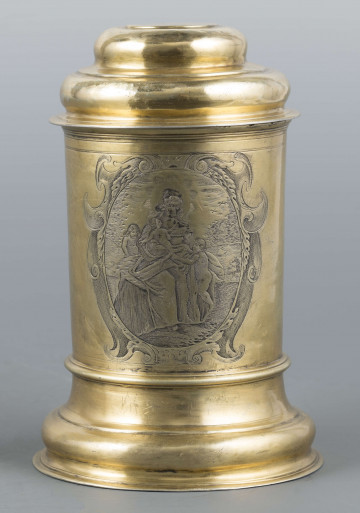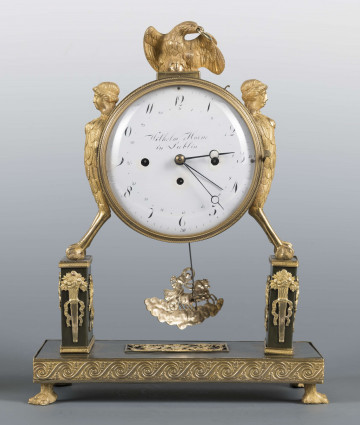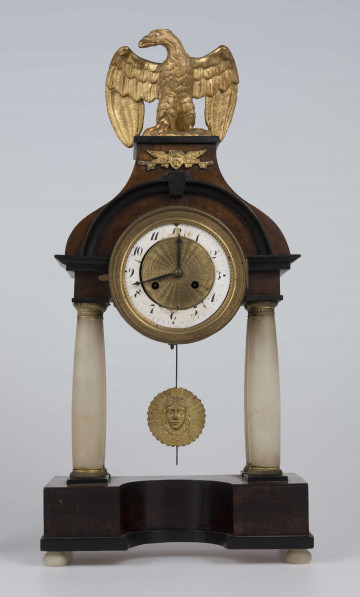
Beer mug
1500 — 1687
National Museum in Lublin
Part of the collection: Clocks
Tile clocks are the crowning achievement of Polish clockmakers; they are superb in design, durable, and imposing. No wonder they remained in use for a long time – from the early 17th to the late 18th century. At that time, the cases were subject to minor changes resulting from style transformations. Casings replaced simple geometric boxes with wavy edges, the legs took the form of twisted volutes, and the windows gained frames with fancy profiles. The glazed windows in the sidewalls of the case allowed observing the mechanism's workings, which was a lovely home entertainment, which is why its elements have additional decorations in the form of engravings and openwork inserts. Even though the sound of the clock chiming the quarters and hours during the day was pleasant to the ear, it could be not comforting at night. To ensure silence, the clockmaker placed a lever in the corner of the dial, making it possible to switch off this function if necessary.
The maker of this clock was a master craftsman from Lublin, Marek Mayer, active since 1745, who died in 1783. He served as a guild master for six years, proving that guild members held him in high regard. His other works can be found in the collections of Polish museums: the Royal Castle in Wawel, the National Museum in Kraków and the District Museum in Toruń.
Barbara Czajkowska
Author / creator
Dimensions
cały obiekt: height: 10,5 cm, width: 8 cm
Object type
goldsmith's art
Technique
gilding
Material
steel
Creation time / dating
Creation / finding place
Owner
The National Museum in Lublin
Identification number
Location / status

1500 — 1687
National Museum in Lublin

1801 — 1810
National Museum in Lublin

1830 — 1840
National Museum in Lublin
DISCOVER this TOPIC
National Museum in Szczecin
DISCOVER this PATH
Educational path